Related Research Articles

Stepney is an area in London, England and is located in the London Borough of Tower Hamlets. It is in East London and part of the East End. Stepney is no longer officially defined, and is usually used to refer to a relatively small area. However, for much of its history the place name applied to a much larger manor and parish. Stepney Green is a remnant of a larger area of Common Land formerly known as Mile End Green.

Whitechapel is an area in London, England and is located in the London Borough of Tower Hamlets. It is in East London and part of the East End. Whitechapel is located 3.4 miles (5.5 km) east of Charing Cross.
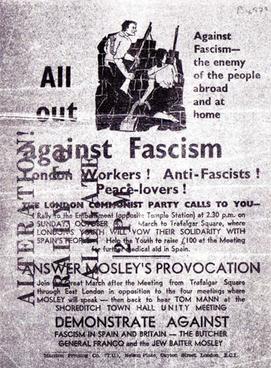
The Battle of Cable Street was a series of clashes that took place at several locations in the East End of London, most notably Cable Street, on Sunday 4 October 1936. It was a clash between the Metropolitan Police, sent to protect a march by members of the British Union of Fascists led by Oswald Mosley, and various de jure and de facto anti-fascist demonstrators, including local trade unionists, communists, anarchists, British Jews, supported in particular by Irish workers, and socialist groups. The anti-fascist counter-demonstration included both organised and unaffiliated participants.
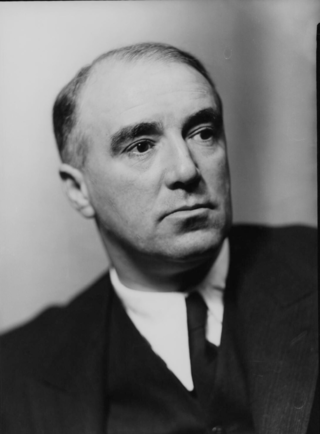
Harry Pollitt was a British communist who served as the General Secretary of the Communist Party of Great Britain (CPGB) from July 1929 to September 1939 and again from 1941 until his death in 1960. Pollitt spent most of his life advocating communism. Ideologically a Marxist–Leninist, Pollitt was an adherent particularly of Joseph Stalin even after Stalin's death and disavowal by Nikita Khrushchev. Pollitt's acts included opposition to the Allied intervention in the Russian Civil War and Polish–Soviet War, support for the Spanish Republicans during the Spanish Civil War, both support and opposition to the war against Nazi Germany, defence of the communist coup in Czechoslovakia, and support for the 1956 Soviet invasion of Hungary.
Philip Piratin was a member of the Communist Party of Great Britain (CPGB) and one of the four CPGB Members of Parliament during the first thirty years of its existence.

The siege of Sidney Street of January 1911, also known as the Battle of Stepney, was a gunfight in the East End of London between a combined police and army force and two Latvian revolutionaries. The siege was the culmination of a series of events that began in December 1910, with an attempted jewellery robbery at Houndsditch in the City of London by a gang of Latvian immigrants which resulted in the murder of three policemen, the wounding of two others, and the death of George Gardstein, a key member of the Latvian gang.

Bethnal Green and Bow is a constituency in Greater London, represented in the House of Commons of the UK Parliament since 2010 by Rushanara Ali of the Labour Party.
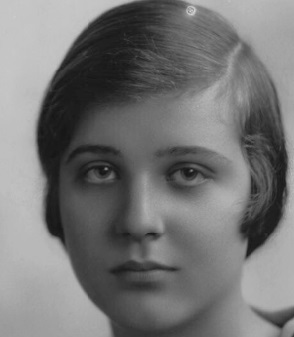
Noreen Branson was a British communist activist, historian, founder of Revolt newspaper, and a life-long member of the Communist Party of Great Britain (CPGB). In 1931 she married fellow communist and International Brigadeer, Clive Branson, and in 1934 she carried out a mission for Harry Pollitt to smuggle funding to Indian communists resisting the British colonial occupation of India. Noreen Branson was most known for her work as a historian, working as a researcher for the Labour Research Department, collaborating with historians Eric Hobsbawm and Roger Simon, and writing the 3rd and 4th volumes of the CPGB's official history.

Mile End was a parliamentary constituency centred on the Mile End district of the East End of London. It returned one Member of Parliament (MP) to the House of Commons of the Parliament of the United Kingdom.

The Whitechapel and St George's by-election, 1930 was a parliamentary by-election held on 3 December 1930 for the British House of Commons constituency of Whitechapel and St George's in the Metropolitan Borough of Stepney.

The East End of London, often referred to within the London area simply as the East End, is the historic core of wider East London, east of the Roman and medieval walls of the City of London and north of the River Thames. It does not have universally accepted boundaries to the north and east, though the River Lea is sometimes seen as the eastern boundary. Parts of it may be regarded as lying within Central London. The term "East of Aldgate Pump" is sometimes used as a synonym for the area.

The Communist Party of Great Britain (CPGB) was the largest communist organisation in Britain and was founded in 1920 through a merger of several smaller Marxist groups. Many miners joined the CPGB in the 1926 general strike. In 1930, the CPGB founded the Daily Worker. In 1936, members of the party were present at the Battle of Cable Street, helping organise resistance against the British Union of Fascists. In the Spanish Civil War, the CPGB worked with the USSR to create the British Battalion of the International Brigades, which party activist Bill Alexander commanded.
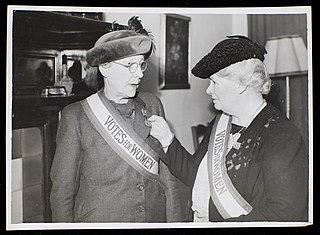
Helen Crawfurd was a Scottish suffragette, rent strike organiser, Communist activist and politician. Born in Glasgow, she was brought up there and in London.
Solly Kaye was a British communist politician.
Ella Donovan was a prominent figure and a full-time organiser in the Stepney Tenants Defence League, a communist led grassroots organisation that organised Rent Strikes in the 1930s. She taught tenants how to organise, determine their legal rights and collectively fight landlords.
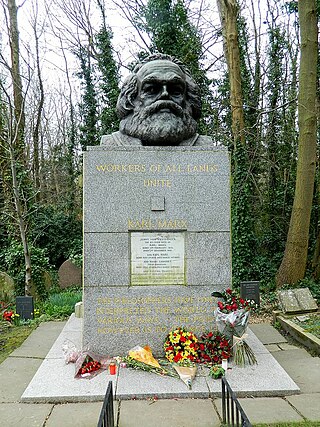
Far-left politics in the United Kingdom have existed since at least the 1840s, with the formation of various organisations following ideologies such as Marxism, revolutionary socialism, communism, anarchism and syndicalism.

Miriam Moses was a British Liberal politician, philanthropist and social reformer. She served as the first female mayor of Stepney, and the first female Jewish mayor in the United Kingdom.
Edith Ramsay, (1895–1983) was an English educator and community activist who served on the Colonial Office Advisory Committee. Ramsay worked to improve conditions for immigrants arriving in Stepney, London in the mid-20th century and was known as "the Florence Nightingale of the Brothels" for her work in London slums.

Max Samuel Levitas was an Ireland-born British communist activist and councillor, prominent in the East End of London for many years. The brother of communist activist Maurice Levitas, Max Levitas was a member of the Young Communist League and later the Communist Party of Great Britain.
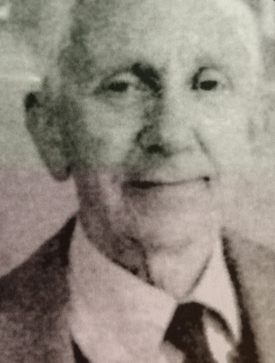
Alf Salisbury was a British communist, Jewish activist, trade union leader, and anti-fascist. During the 1930s he smuggled monetary support from British communists to German communists to help resist the Nazis. Salisbury was present at many key events in the history of anti-fascism, including the Battle of Cable Street, and was also a member of the International Brigades during the Spanish Civil War (1936-1939). In his later life, Alf Salisbury led a successful campaign to convince the BBC and other British news outlets to stop using the term "Mongols" to refer to people with Down Syndrome. For this work he was awarded with special commondations from the Mongolian embassy and a stay in a Mongolian health spa. He was a member of the Communist Party of Great Britain (CPGB), before becoming a founding member of its continuation, the Communist Party of Britain (CPB).
References
- 1 2 3 4 5 6 Sokoloff, Sally (10 June 2018). "Bertha Sokoloff obituary". The Guardian.
- ↑ Gregory, Eve; Williams, Ann (4 January 2002). City Literacies: Learning to Read Across Generations and Cultures. Routledge. p. 102. ISBN 978-1-134-65474-1.
- 1 2 Srebrnik, Henry (1 September 1995). "Class, ethnicity and gender intertwined: Jewish women and the East London rent strikes, 1935-1940". Women's History Review. 4 (3): 283–299. doi:10.1080/09612029500200086. ISSN 0961-2025.
- ↑ Sokoloff, Bertha (1987). Edith and Stepney: the life of Edith Ramsay. Stepney Books. ISBN 978-0950524160.